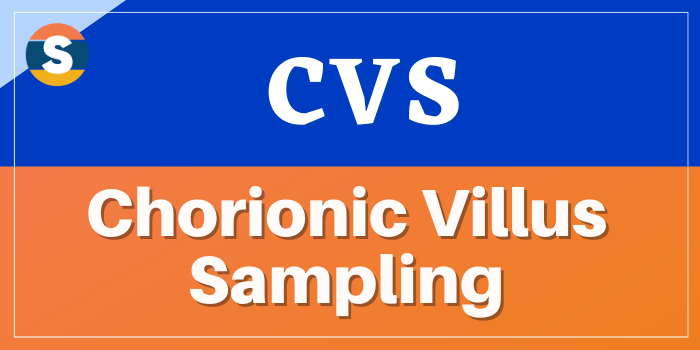
The Full form of CVS is Chorionic Villus Sampling. CVS is a procedure for first-trimester prenatal diagnosis. It is a type of prenatal diagnostic test to detect chromosomal problems that can result in genetic diseases and birth defects. CVS may be done between the eighth and tenth weeks of pregnancy. The aim is to diagnose severe abnormalities that are present in the fetus. Tissue is withdrawn from the villi of the chorion (a part of the placenta) and then prepared for diagnostic analysis. A major benefit of CVS is that it provides information about genetic defects earlier in the pregnancy and can be performed earlier in the pregnancy than amniocentesis. If a woman chooses termination of pregnancy, it is safer at earlier stages of pregnancy. The main risk associated with CVS is miscarriage and occurs in 1 out of every 100 cases. The risk of miscarriage can be slightly greater than the risk of miscarriage associated with amniocentesis. CVS testing is generally offered to women or couples who have one of the following; women over the age of 35, couples with a family history of genetic disorders or birth defects or women with other abnormalities found in prenatal testing.